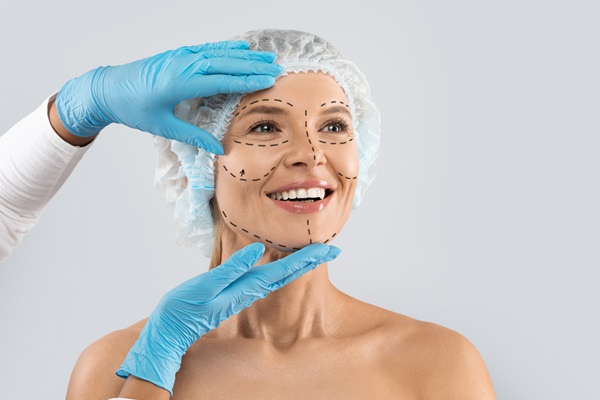Facial Surgery Recovery: Tips From an Oral Surgeon

A facial surgeon can correct problems with wisdom teeth and jawbones. This dental professional has a high level of training and experience to perform complicated surgeries to restructure the entire mouth. Knowing how you can recover well from such a procedure can prevent complications later on. Here are some tips that a facial surgeon can share about facial surgery recovery.
Take the prescribed medications according to the instructions
The patient must take antibiotics before and after the procedure. Doing so can reduce or remove the risk of infections. Continue to take these antibiotics throughout the prescribed period. These medications can make one’s recovery quicker and easier. There are also over-the-counter pain relievers for managing pain and discomfort if the facial surgeon does not prescribe them.
Practice mindful cleaning
After the procedure, the facial surgeon will tell the patient how to brush. The mouth may still be sensitive for regular oral care practices. The surgeon will remind the patient of the tender areas. Cleaning the neighboring teeth and gums must continue. A saltwater rinse can keep infections at bay and reduce pain and swelling.
Rest for an entire day
Take a day off from school or work after the facial surgery. The facial surgeon will use a sedative on the patient. This medication will make the individual sleepy before, during, and after the procedure. Driving or doing anything that needs focus is not an option.
Someone must drive the patient home and help the patient around the house until the sedative fades. Avoiding strenuous activities is ideal. Lifting, bending, or running can dislodge blood clots. This can then cause bleeding. Elevating the head by placing extra pillows under the head can help reduce or even stop the bleeding.
Apply some ice
The facial surgeon will warn the patient about facial swelling after the surgery. This is a normal tissue reaction after surgical manipulation. Managing this is possible by applying ice packs for the first day. Do this for 30 minutes and then remove it for about 15 minutes. Repeat this treatment many times a day for two to three days. Call the facial surgeon if there is pus formation or if the patient develops a fever.
Choose proper foods and drinks
Refrain from eating or drinking until the anesthetic fades. This will prevent accidental bite injuries to the soft tissues of the mouth. Avoiding hard, spicy, and hot foods or drinks is also necessary. Doing so can prevent any irritation to the surgical site. Soft and cool foods like yogurt or instant oatmeal are good choices.
Stop smoking or drinking alcoholic beverages
Studies show that tobacco and alcoholic beverages impair the body’s ability to oxygenate and circulate blood. This slows down the rate at which the body heals. The facial surgeon will recommend stopping these habits months before and after the procedure. Quitting them can help heal the treated areas.
A facial surgeon can help you recover better with the mentioned tips
Problems in your teeth or jaw may need the help of a facial surgeon. Going through corrective procedures is a big decision. Manipulating soft tissue and bone will need significant healing. Working with your facial surgeon can speed up your recovery. It may also lead to your procedure’s possible success.
Request an appointment here: https://www.premieroralsurgeryct.com or call Premier Oral Surgery at (203) 945-0049 for an appointment in our Norwalk office.
Check out what others are saying about our services on Yelp: Read our Yelp reviews.
Related Posts
Botox® (botulinum toxin type A) can play a supportive role in oral and maxillofacial care when muscle-driven jaw and facial conditions do not respond well to first-line therapies. Oral surgeons sometimes use Botox to reduce excessive muscle activity, calm painful muscle trigger patterns, and support functional recovery in carefully selected cases. Botox works by inhibiting…
Wisdom teeth extraction may be necessary to achieve better dental health. Research shows that the third molars often emerge after all your teeth have erupted. Wisdom teeth may not be a problem at all. But in some cases, the dentist will recommend their removal. Here are the details on how a wisdom teeth extraction happens.This…
For individuals with extensive tooth loss or poorly fitting dentures, All-on-4® dental implants offer a long-lasting solution. This innovative approach supports a full arch of prosthetic teeth using just four implants, providing stability, comfort, and a natural appearance. Those considering an All-on-4 benefit from understanding who qualifies and how this option helps restore confidence and…
Corrective jaw surgery is often recommended by dentists and oral surgeons to address functional problems, such as difficulty breathing or chewing, and chronic discomfort caused by a misaligned jaw or bruxism. This review discusses several important questions to ask your oral surgeon during a corrective jaw surgery consultation.Corrective jaw surgery has helped many patients feel…
